Ultimate Oyakodon (Japanese Egg and Chicken Bowl)
Ingredients
- 300 g boneless chicken thigh skin-on, bitesize pieces, cut across the grain for tenderness
- 1 pinch salt
- 1 tbsp all-purpose flour
- 1 tsp cooking oil neutral oil like vegetable, canola or rice bran
- 100 ml dashi stock homemade or instant granules work well
- ½ onion cut into thin wedges
- 3 tbsp mirin
- 1 tbsp light brown sugar
- 1 tsp Chinese-style chicken bouillon powder or regular chicken bouillon powder
- 2 tbsp Japanese soy sauce (koikuchi shoyu)
- 3 eggs room temperature
- kizami nori (shredded nori) optional garnish
- Japanese wild parsley (mitsuba) or chopped green onion, optional garnish
- 2 portions cooked Japanese short-grain rice If you don't have a rice cooker, you can use my method to cook Japanese style rice on the stove.
Instructions
- Cut 300 g boneless chicken thigh into bitesize pieces and place them in a bowl. Add 1 pinch salt and 1 tbsp all-purpose flour, and mix thoroughly until it is evenly coated.
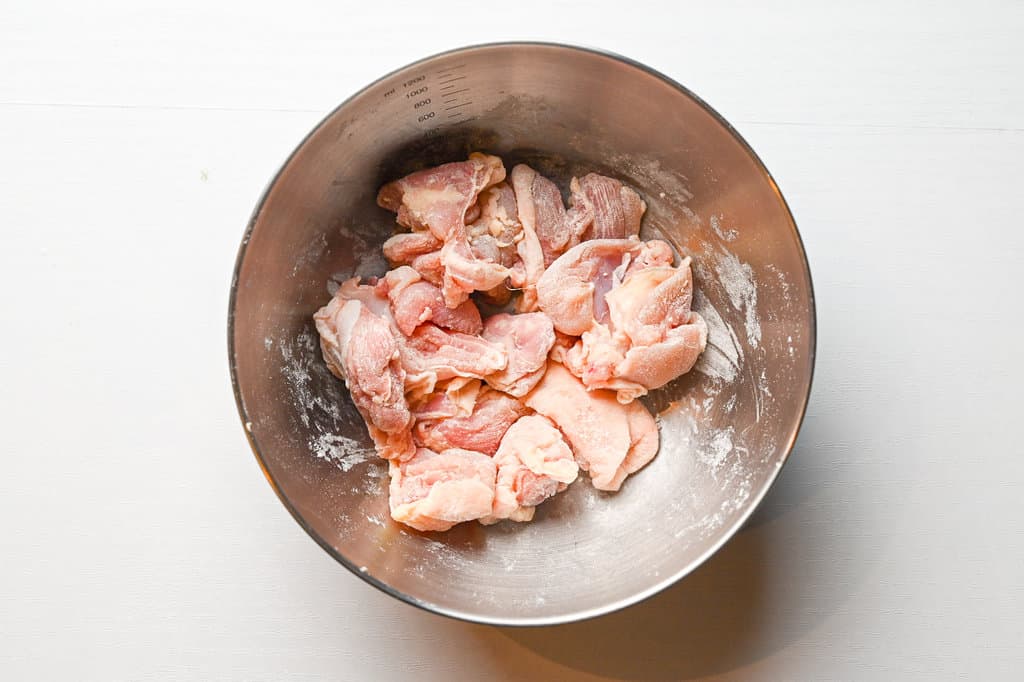
- Heat a frying pan on medium and once hot, add 1 tsp cooking oil. Place the chicken thigh pieces in the pan in a single layer with the skin side facing down.
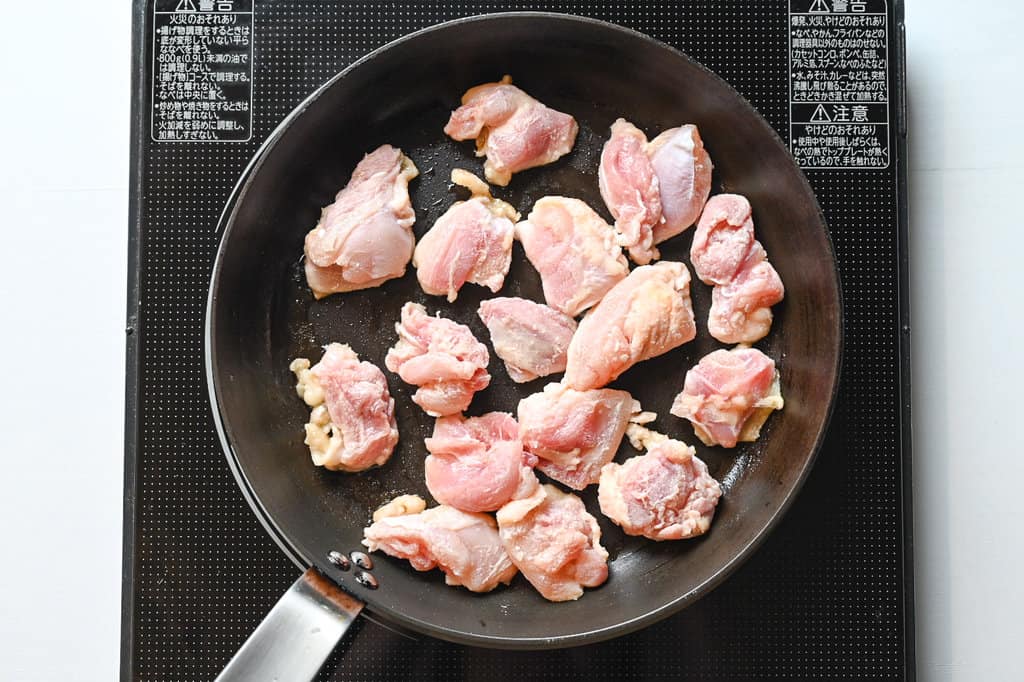
- Fry the chicken until the skin becomes crispy and then flip over. Sear on the other side, then turn off the heat and transfer the chicken to a plate.
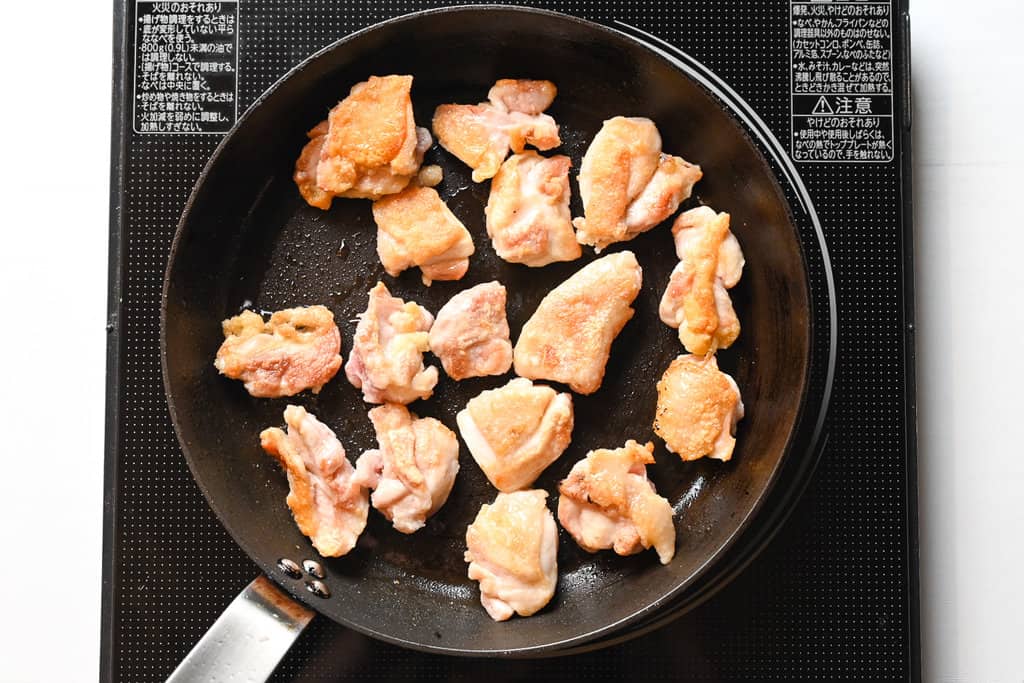
- Wipe the pan with kitchen paper to remove the excess oil and add 100 ml dashi stock, 3 tbsp mirin, 1 tbsp light brown sugar, 1 tsp Chinese-style chicken bouillon powder to a pan and mix well. Place ½ onion in the broth and turn on the heat to medium. Simmer until the onion is softened.
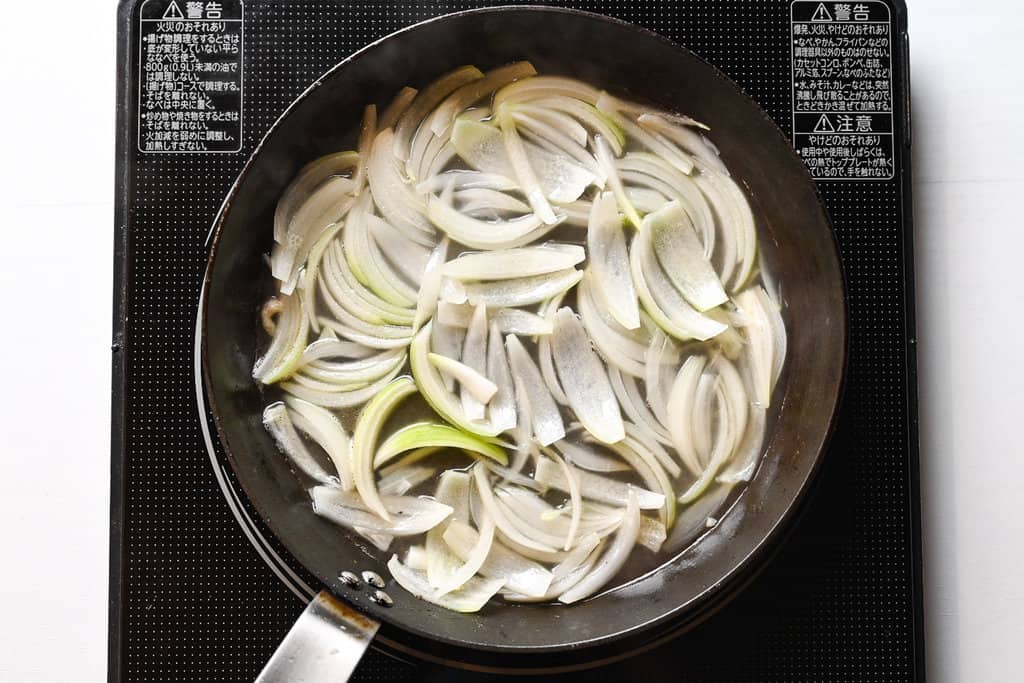
- Once the onions are soft, pour 2 tbsp Japanese soy sauce (koikuchi shoyu) into the pan and add the chicken pieces back in, evenly spaced apart.
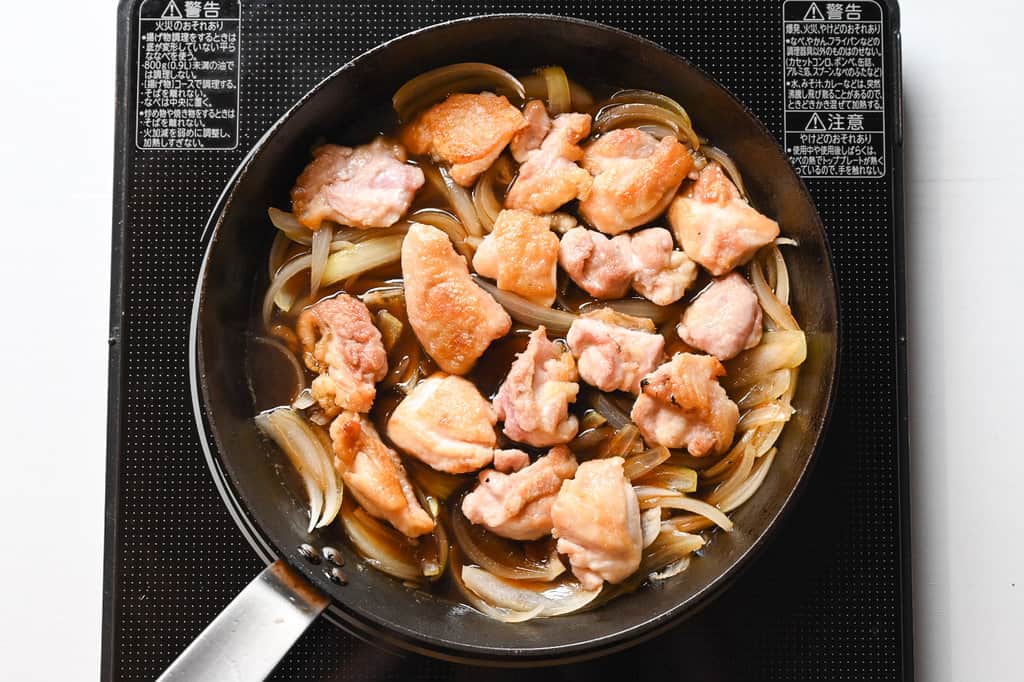
- Separate the whites and yolks of 3 eggs into two separate bowls.
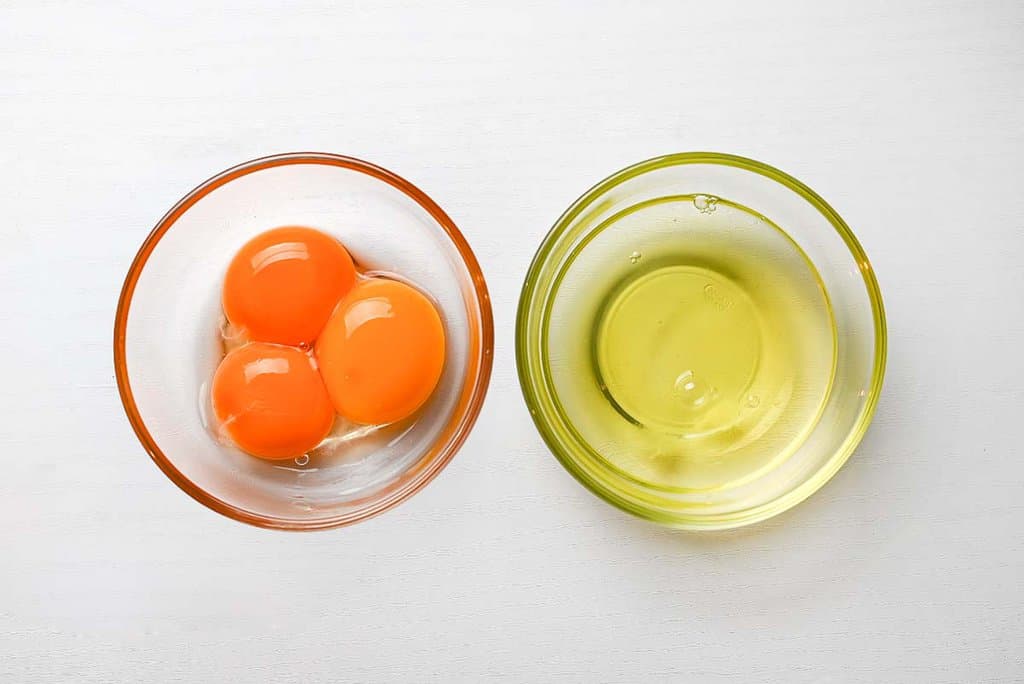
- Whisk the egg whites and pour them around the pan. (Do not add the yolks yet.)
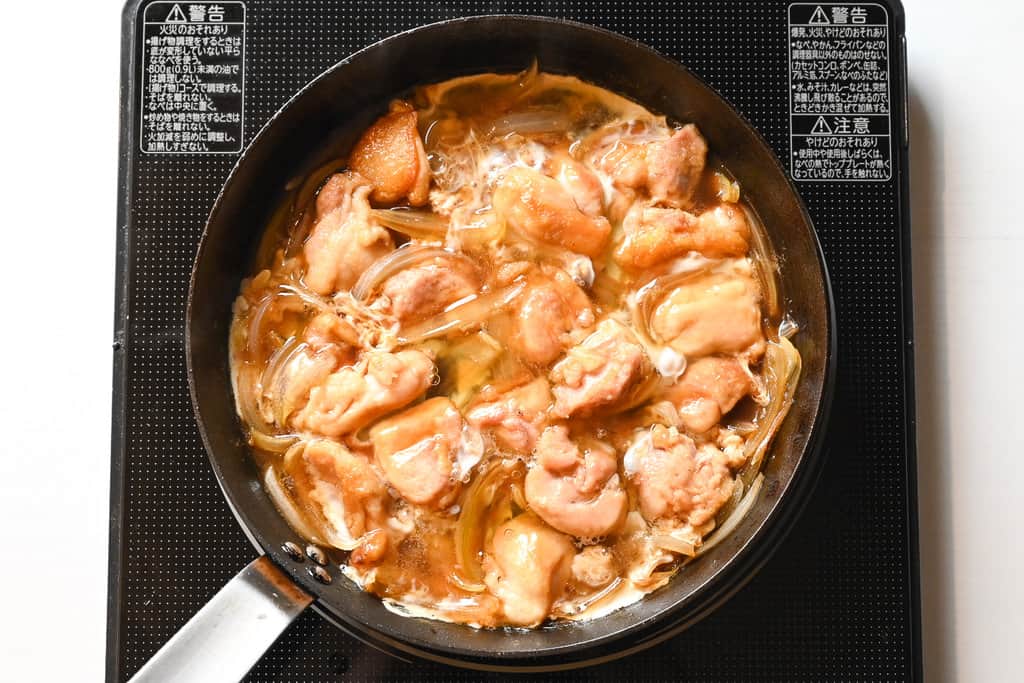
- Place a lid on top and cook for 3 minutes or until the whites are just starting to turn opaque.
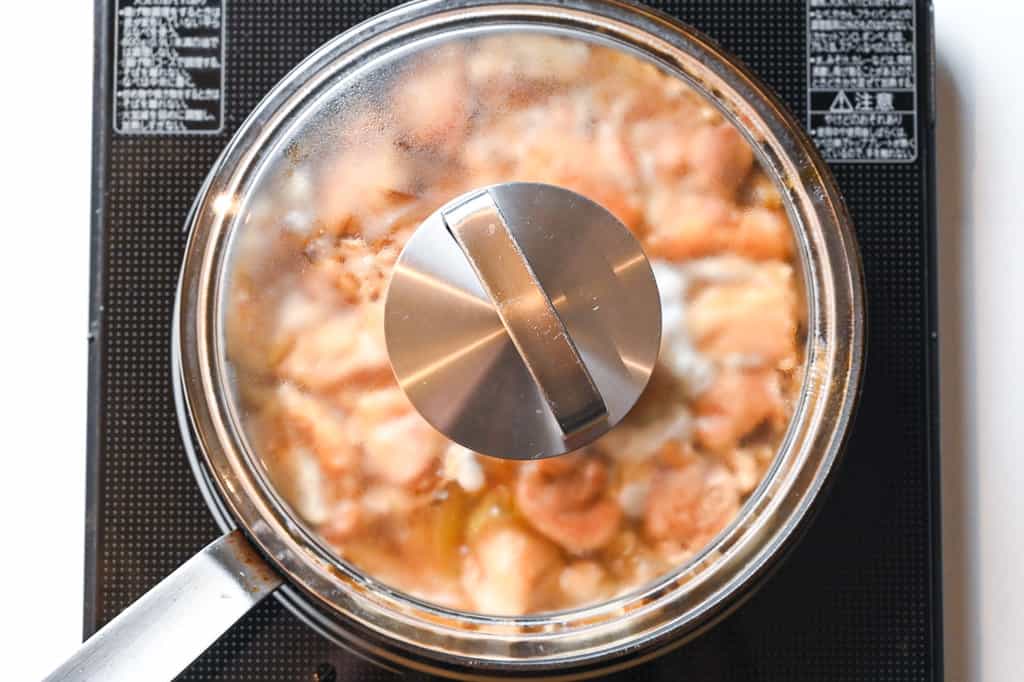
- Reduce the heat to the lowest setting and remove the lid. Whisk the egg yolks and pour them around the pan. Place the lid back on and continue to cook in the steam until it reaches your preferred doneness. (Authentic oyakodon should have eggs that are only just cooked, slightly runny yolks are recommended.)
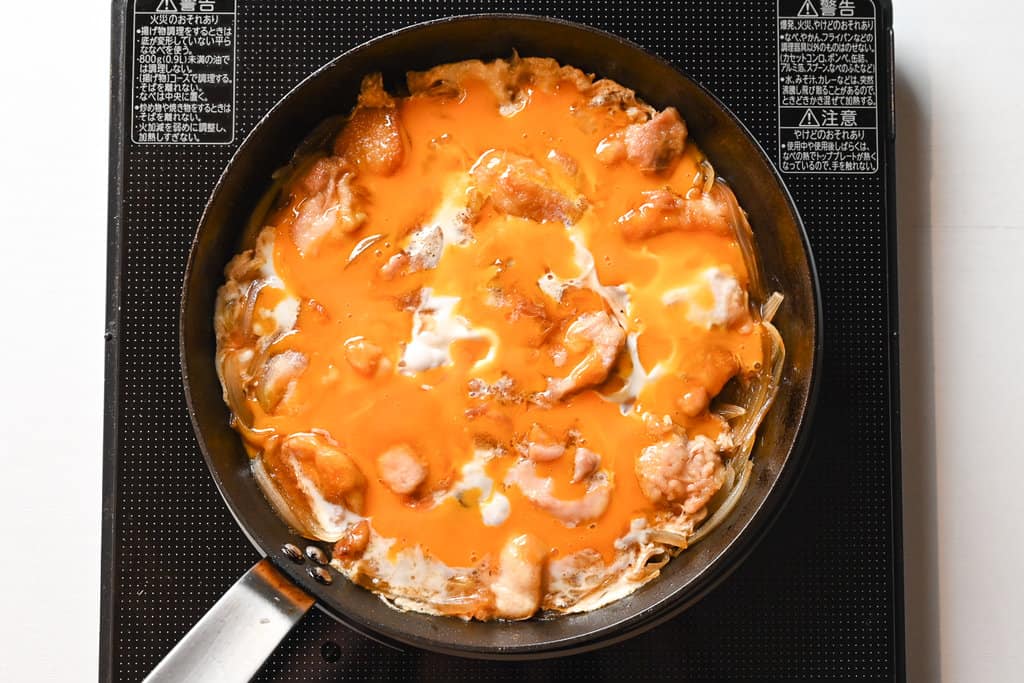
- Use a spatula to divide the egg into pieces that will fit on top of your serving bowls. Dish up 2 portions cooked Japanese short-grain rice, then use a spatula or large serving spoon to scoop the egg and chicken mixture onto the rice.
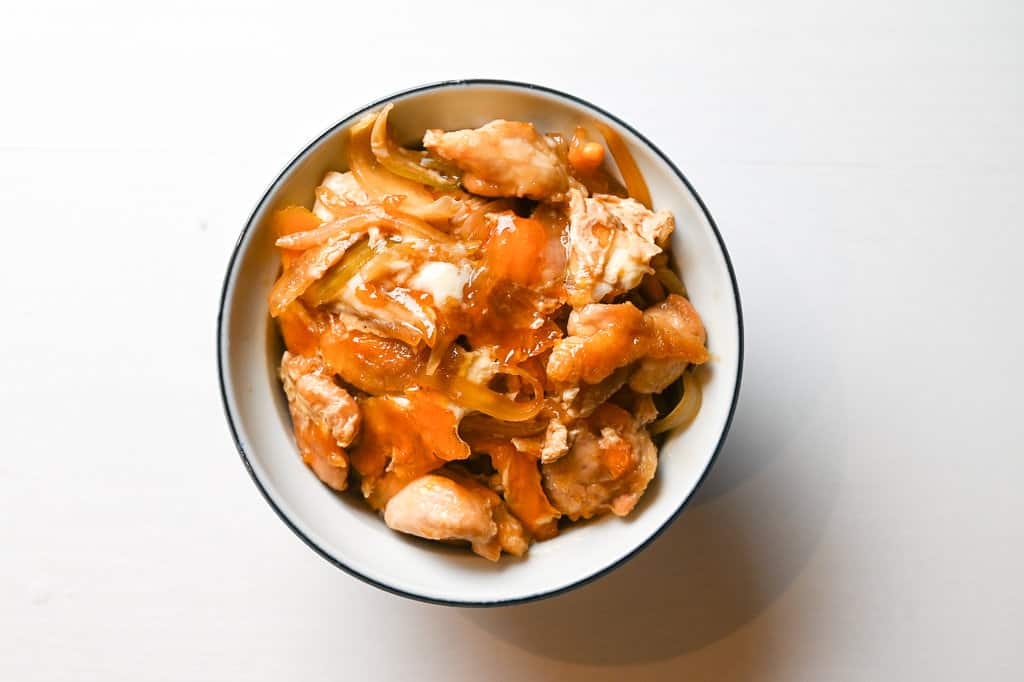
- Drizzle any leftover sauce in the pan evenly over each portion and garnish with kizami nori (shredded nori) and Japanese wild parsley (mitsuba). Enjoy!
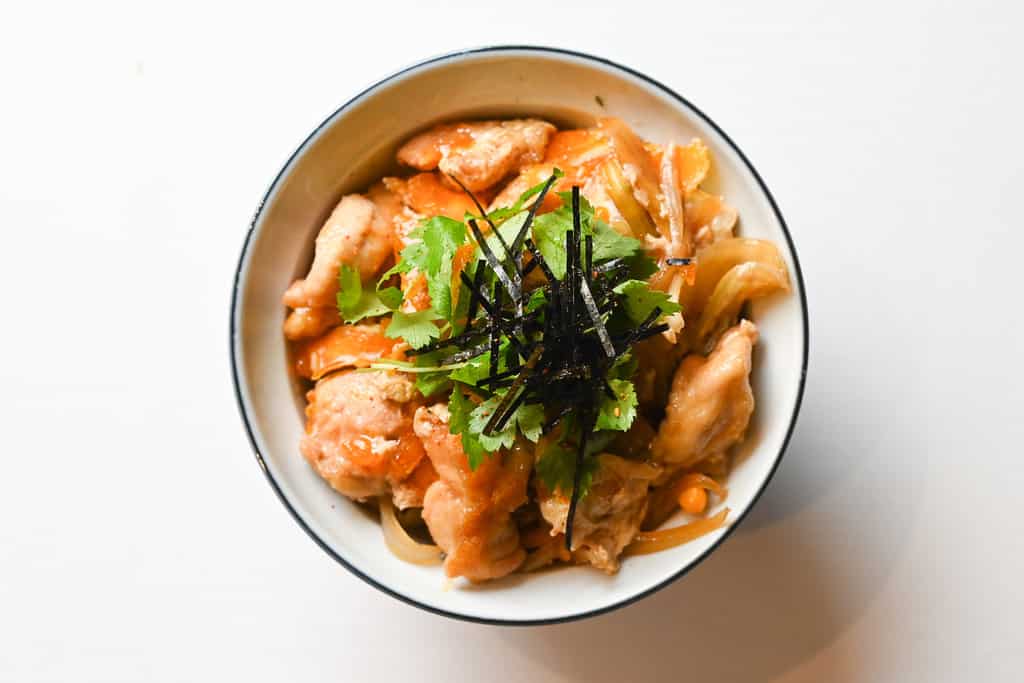
Notes
- Cook the onions thoroughly to release their natural sweetness and highlight their soft, melt-in-mouth texture!
- Add egg whites first to the pan and cook until firm.
- Add lightly whisked egg yolks near the end of cooking for optimal texture and color.
- Oyakodon doesn't store well, but components can be prepped separately (sauce base, sliced onions, cut chicken) up to 24 hours ahead.
- Serving ideas: Authentic miso soup, Mushroom miso soup, Pickled cucumber, Pickled Napa cabbage.